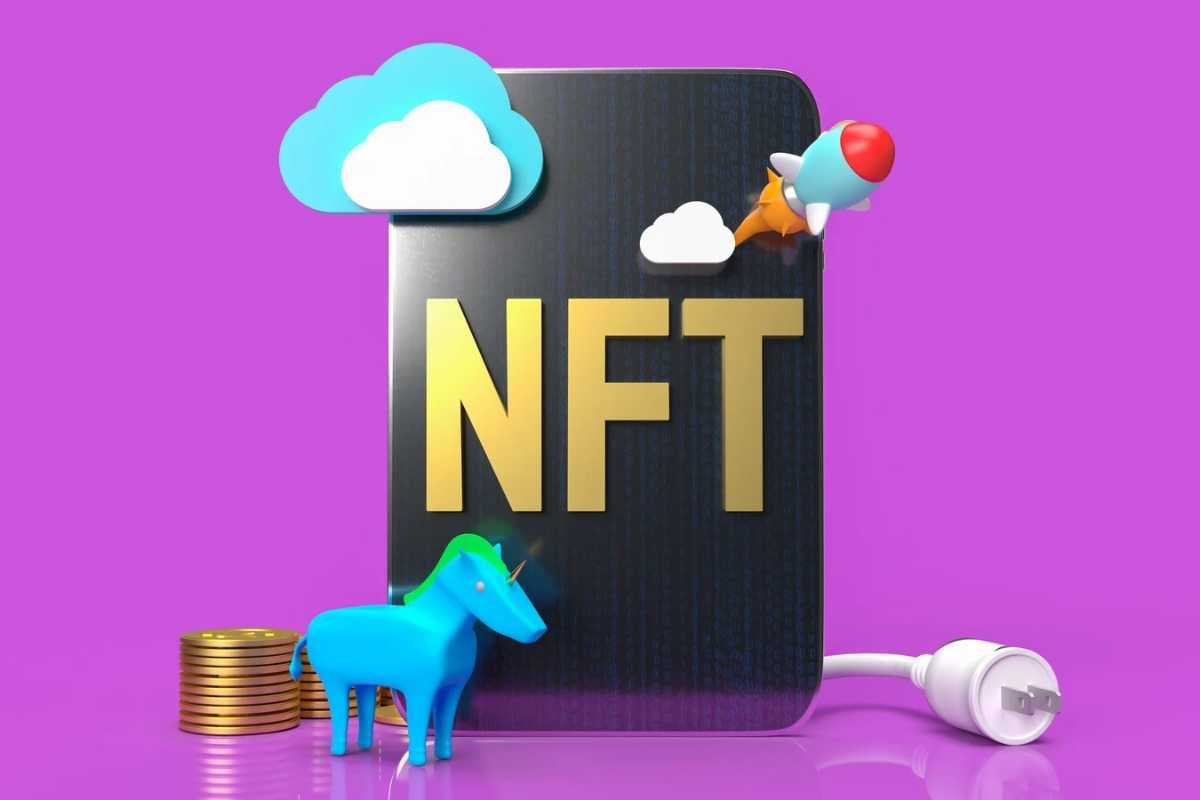Having a digital ticket can reduce the likelihood that you’ll lose it, but QR Codes are difficult to authenticate and don’t provide much in the way of souvenirs. An NFT ticket would be quite helpful in this scenario for a person who goes to a movie or a concert, or anything that requires a ticket. Since NFT tickets are digital assets held on a blockchain, there is a minimal chance that they will be misplaced, stolen, or damaged. Additionally, NFT tickets might develop into priceless artefacts that serve as enduring mementos.
NFTs are developing to have additional applications outside the realms of art and games. Therefore, it should not be surprising that NFT technology can assist in addressing the inefficiencies that the legacy ticketing sector experiences. NFT tickets have the ability to change the ticketing environment for all parties involved by solving the drawbacks of paper tickets, rewarding fans with special benefits, and even adding an extra layer of protection for events.
NFTs, an abbreviation for non-fungible tokens, are cryptographic tokens that stand in for particular digital assets. They give us the ability to tokenize physical or digital assets like artwork, valuables, or real estate. They serve as a verifiable form of ownership and authenticity verification because they are kept on a blockchain network. Additionally, an NFT cannot be changed or falsified and can only have one official owner at a time.
NFT tickets are digital possessions that save your event entry information. To further enhance the fan experience, they can also provide ticket holders with extra benefits like meet-and-greets, special goods, and more. NFT tickets can provide artists and event organizers with continuous royalties in addition to fostering a stronger connection with their audience.
Also read: Top 5 NFT trading Strategies For Investors 2023
When you consider how an NFT operates, event tickets are a natural fit. Physical tickets typically consist of one unique piece of paper and are only good for one admission or seat per event. Tickets are non-fungible in that sense. Since live venues have capacity restrictions, tickets are offered in small batches, much like NFTs.
The drawback of traditional ticketing is that there is little regulation or control over the few distribution channels through which tickets are distributed. For instance, ticket scalpers can purchase the majority of tickets online and resell them for a profit by inflating prices on the secondary ticket market. It provide event organizers better control over primary and secondary ticket sales because everyone can follow transactions on a blockchain ledger, making it easy for everyone to see when and where the ticket was acquired and sold.
With the aid of a smart contract, a piece of software that runs on the blockchain, an NFT ticketing system can also aid in limiting resale value and costs. When and if specific circumstances are met, a smart contract is deterministic software that self-executes specific tasks. By establishing a rule that can cause a royalty payment anytime the ticket is sold to a new owner, organizers can control how royalties on secondary ticket sales are divided.
Also read: Quick Guide to Mint, Buy and Sell NFTs
Additionally, event organizers can eliminate third-party distribution by creating the necessary number of NFT tickets as part of the ticketing system on their preferred blockchain network. Payment from a buyer will start a smart contract once they’ve determined the selling or auction price. The purchaser will then receive the ticket in their digital wallet, giving them access to it whenever they want using their phone. You have the option of reselling your ticket on the NFT marketplace chosen by the event organizer because the NFT ticket is kept on a blockchain network. A smart contract is triggered if someone purchases your ticket, and you will be paid while the buyer receives the ticket.
By addressing the inefficiencies in the current ticketing system, NFT ticketing has the potential to upend the traditional ticketing market.
1. The fact that paper tickets and QR Codes are easily counterfeit is one of the main drawbacks, leaving event venues less secure and disappointing fans who inadvertently purchased bogus tickets. Thus, combating fraud. However, because NFT ticket transactions are documented on a blockchain ledger, event planners and participants can verify the validity of each ticket in the chain and trace the ownership history, making it virtually impossible for criminals to fake a ticket.
2. The price of selling and minting NFT tickets may be less than the price of creating and distributing conventional tickets. NFT tickets can frequently be produced with a lot less lead time than traditional tickets, giving organisers a considerably shorter time frame for ticket printing and distribution. Thus, providing cheaper and quicker manufacture.
Also read: Top 5 Sports Personalities Who Own NFT In 2022; Here List
3. NFTs’ use of blockchain technology creates the possibility of creating real value for all parties. Using smart contract technology, NFT tickets can give the artist and event organizer recurring income. A portion of the resale earnings may also go to the artist if a ticket holder sells their ticket on a secondary market. Thus, providing ongoing prospects for profit. Owners of tickets have the option to sell the NFT airdrops they receive as part of the package deal.
4. Tickets printed on conventional paper are easily lost or harmed. The chance of losing or destroying your NFT ticket is drastically reduced because it is kept in a mobile device-accessible digital wallet. It minimizes the risk of damage or loss.
NFTs have the potential to enable artists, event organisers, and fans to see the system alter in their favor with the rise of blockchain technology and Web 3.
NFT tickets are created on a blockchain network, making them simple to authenticate and keeping bad actors from making or disseminating counterfeit tickets. The NFT ticketing system also gives event planners and performers more control over their primary and secondary market ticket sales while building long-lasting relationships with fans.
Although the NFT market is still young, at the rate it is expanding, it has the ability to advance the conventional ticketing system and other aspects of the live event industry.
Consensus mechanisms are used in blockchain networks to reach agreement among numerous distributed nodes while keeping the network secure.
As NFTs are getting popular, we have more and more questions regarding the same. In this article, we talk about NFT tickets.
The market for NFT avatars has expanded quickly.Even NFTs from the CryptoPunks collection have been sold for millions of dollars.
With favorable technical indicators, upcoming smart contracts & growing partnerships, is Ripple’s XRP price ready for a 2023 rally?
Terra founder Do Kwon has reportedly cashed in the Luna Foundation Guard’s Bitcoin worth nearly $190K in Serbia.
XRP News: Filings suggest that the SEC is still in pursuit of shielding the vital Hinman docs. While whales are moving millions of Ripple.
Share on
DAILY NEWSLETTER
Your daily dose of Crypto news, Prices & other updates..


